Can you run Windows on a Chromebook?
Technically it's possible, but you probably don't want (or need) to.
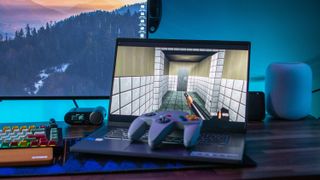
Can you run Windows on a Chromebook?
Best Answer: Provided that your Chromebook meets the necessary requirements, it is technically possible to run Windows on a Chromebook. However, the installation process is quite exhaustive, and you're likely better relying on a different option.
Why would you want Windows on a Chromebook?
Why you can trust Android Central
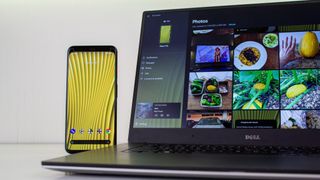
Before you even go down the rabbit hole of trying to run Windows on a Chromebook, you should step back and ask yourself why. The most obvious answer to this is that you want to use one of the best Chromebooks, but don't have access to a specific piece of software on ChromeOS.
There are workarounds for this, that don't require you to nuke the entire system just to replace ChromeOS with Windows. Some such solution is using the likes of Chrome Remote Desktop to access something like your desktop PC. It's pretty easy to set up and only requires an extension to be installed via the Chrome Web Store.
Another solution is using CrossOver from CodeWeavers, which allows you to use Windows software on ChromeOS. With CrossOver, you'll be able to use Microsoft Office, Notepad++, and more Windows-only apps on your Chromebook. However, unlike Chrome Remote Desktop, CodeWeavers will set you back $74 after the free trial has concluded.
Lastly, if you're someone who wants to play Steam games on ChromeOS, you have a couple of options. The first of which is to just install Steam Beta on your compatible Chromebook and then see if your games are compatible. Otherwise, you can check out NVIDIA GeForce Now or Xbox Game Pass which are two of the best cloud gaming services.
Windows on a Chromebook: The requirements
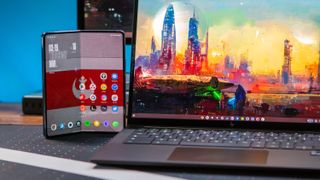
If you're still set on installing and using Windows on a Chromebook, you'll want to make sure your Chromebook meets the necessary requirements. Google doesn't provide any specific requirements, but since the process includes setting up a virtual machine, we can get a pretty good idea.
The first requirement is an easy one, and it's that you'll need to make sure you can install and run Linux apps on your Chromebook. This was introduced back with the release of ChromeOS 91, and if you've purchased a Chromebook in the past few years, you should have this feature available.
With that in mind, the next requirement that your Chromebook needs to meet comes down to the actual hardware. At a minimum, you should be using a Chromebook that uses either a 64-bit Intel or AMD processor. Going even further, the Chromebook will need to support using a Kernel-based Virtual Machine (or KVM.)
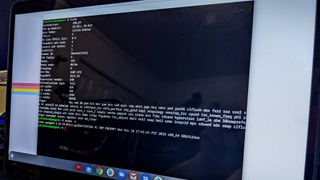
Then, you should have at least 128GB of storage and 8GB of RAM, which you'll need to properly allocate when setting up the virtual machine. Lastly, you'll need a few extras, such as the Windows 11 ISO, a thumb drive with at least 16GB of storage, and lots of patience.
Provided that you meet all the requirements, then you should be able to use Windows on a Chromebook. It just could end up taking quite a while to get everything set up. Even then, there's a chance that you'll run into compatibility issues.
Should you run Windows on a Chromebook?
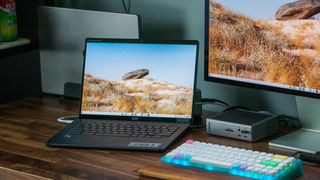
Frankly, between having access to the Play Store, installing Linux apps, and even the ability to use Steam, we can't imagine many scenarios where you need to run Windows on a Chromebook. Plus, there are so many great web apps available that you might be able to find an alternative solution that works in Chrome. Is it possible? Sure. Is it recommended? Not really.
Even if you spend the time to get the Virtual Machine set up and running, there's a good chance that other issues will appear. In some cases, you might find yourself needing to go with a Windows 10 VM as opposed to Windows 11, meaning that you have to start over again.
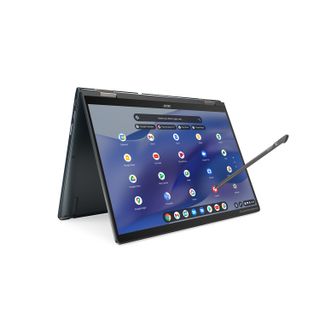
The best all-arounder
Acer's Chromebook Spin 714 has more than enough power to handle everything from installing Linux apps to enjoying Steam games. There's even a built-in USI stylus which goes quite nicely with the convertible design of this excellent Chromebook.
Be an expert in 5 minutes
Get the latest news from Android Central, your trusted companion in the world of Android

Andrew Myrick is a Senior Editor at Android Central. He enjoys everything to do with technology, including tablets, smartphones, and everything in between. Perhaps his favorite past-time is collecting different headphones, even if they all end up in the same drawer.
